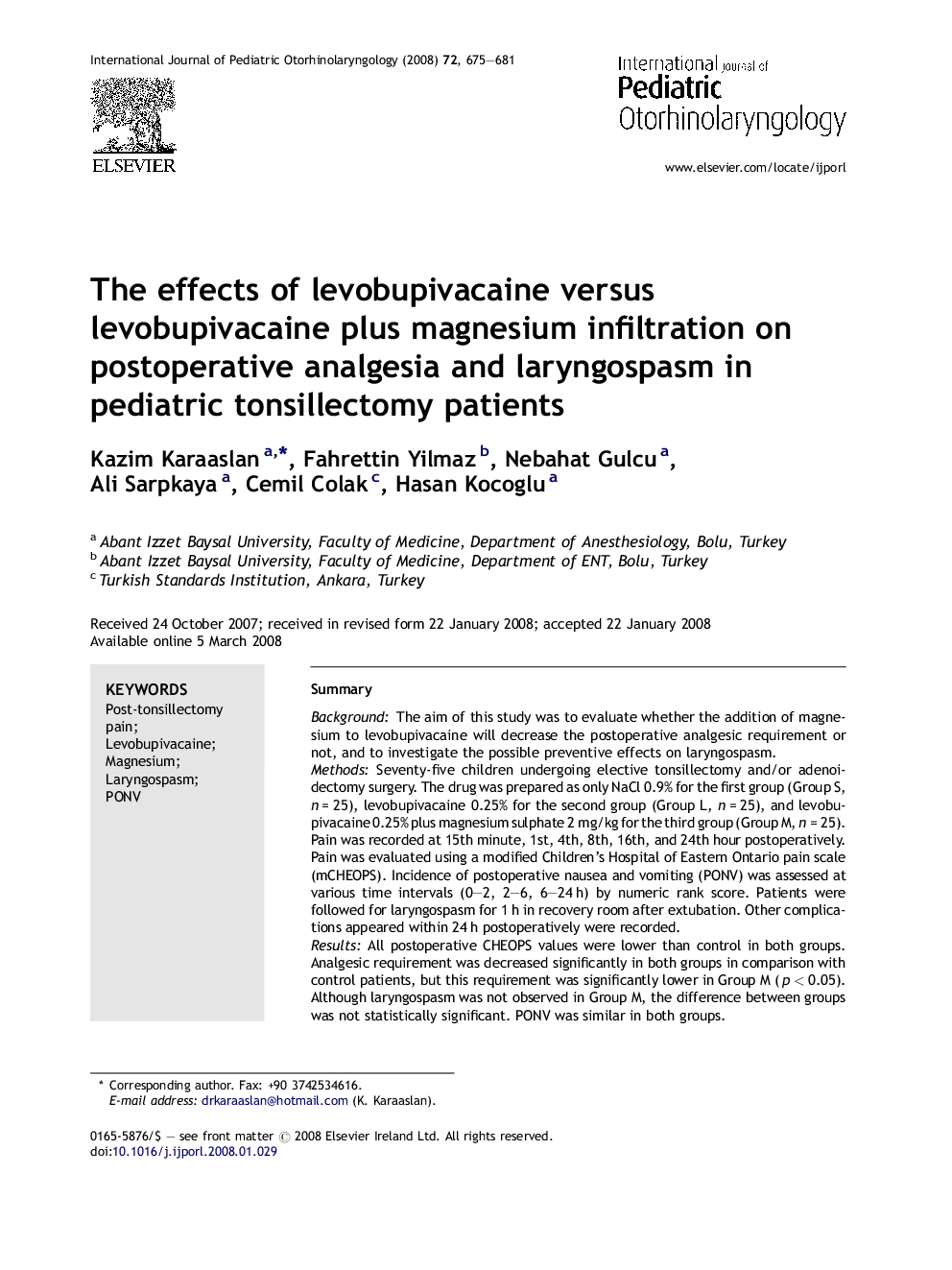| کد مقاله | کد نشریه | سال انتشار | مقاله انگلیسی | نسخه تمام متن |
|---|---|---|---|---|
| 4114636 | 1606083 | 2008 | 7 صفحه PDF | دانلود رایگان |

SummaryBackgroundThe aim of this study was to evaluate whether the addition of magnesium to levobupivacaine will decrease the postoperative analgesic requirement or not, and to investigate the possible preventive effects on laryngospasm.MethodsSeventy-five children undergoing elective tonsillectomy and/or adenoidectomy surgery. The drug was prepared as only NaCl 0.9% for the first group (Group S, n = 25), levobupivacaine 0.25% for the second group (Group L, n = 25), and levobupivacaine 0.25% plus magnesium sulphate 2 mg/kg for the third group (Group M, n = 25). Pain was recorded at 15th minute, 1st, 4th, 8th, 16th, and 24th hour postoperatively. Pain was evaluated using a modified Children's Hospital of Eastern Ontario pain scale (mCHEOPS). Incidence of postoperative nausea and vomiting (PONV) was assessed at various time intervals (0–2, 2–6, 6–24 h) by numeric rank score. Patients were followed for laryngospasm for 1 h in recovery room after extubation. Other complications appeared within 24 h postoperatively were recorded.ResultsAll postoperative CHEOPS values were lower than control in both groups. Analgesic requirement was decreased significantly in both groups in comparison with control patients, but this requirement was significantly lower in Group M (p < 0.05). Although laryngospasm was not observed in Group M, the difference between groups was not statistically significant. PONV was similar in both groups.ConclusionsLevobupivacaine and Levobupivacaine plus magnesium infiltration decrease the post-tonsillectomy analgesic requirement. Insignificant preventive effect of low doses of magnesium infiltration on laryngospasm observed in this study needs to be clarified by larger series.
Journal: International Journal of Pediatric Otorhinolaryngology - Volume 72, Issue 5, May 2008, Pages 675–681